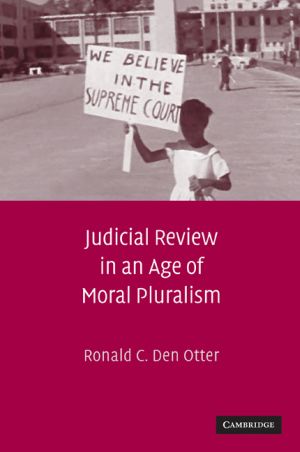
Americans cannot live with judicial review, but they cannot live without it. There is something characteristically American about turning the most divisive political questions - like freedom of religion, same-sex marriage, affirmative action, and abortion - into legal questions with the hope that courts can answer them. In Judicial Review in an Age of Moral Pluralism Ronald C. Den Otter addresses how judicial review can be improved to strike the appropriate balance between legislative and judicial power under conditions of moral pluralism. His defense of judicial review is predicated on the imperative of ensuring that the reasons that the state offers on behalf of its most important laws are consistent with the freedom and equality of all persons. Den Otter ties this defense to a theory of constitutional adjudication based on John Rawls’s idea of public reason and argues that a law that is not sufficiently publicly justified is unconstitutional, thus addressing when courts should invalidate laws and when they should uphold them even in the midst of reasonable disagreement about the correct outcome in particular constitutional controversies.
• Addresses why judicial review is justified in a democracy like our own and how it can be improved • Addresses how the existence of reasonable moral disagreement changes the way in which we must think about the legitimacy of judicial review and how the Constitution ought to be interpreted • Addresses the apparent indeterminacy of the constitutional text and the case law that has glossed it over time and how judges and others can assess the quality of constitutional arguments